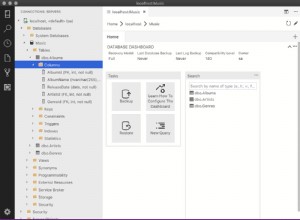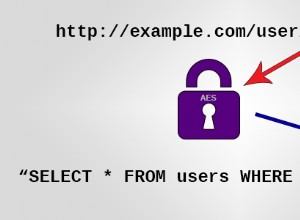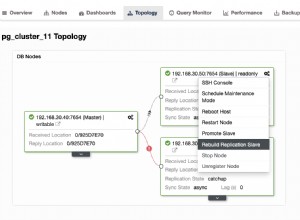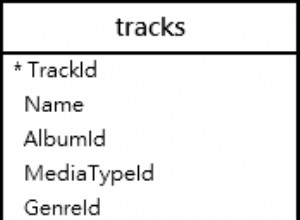Imposti ogni handle cURL allo stesso modo, quindi aggiungilo a un curl_multi_ maneggiare. Le funzioni da guardare sono curl_multi_* funzioni documentate qui
. Nella mia esperienza, tuttavia, si sono verificati problemi con il tentativo di caricare troppi URL contemporaneamente (anche se al momento non riesco a trovare le mie note su di esso), quindi l'ultima volta che ho usato curl_mutli_ , l'ho impostato per eseguire batch di 5 URL alla volta.
modifica :Ecco una versione ridotta del codice che ho usando curl_multi_ :
modifica :Leggermente riscritto e molti commenti aggiunti, che si spera possano aiutare.
// -- create all the individual cURL handles and set their options
$curl_handles = array();
foreach ($urls as $url) {
$curl_handles[$url] = curl_init();
curl_setopt($curl_handles[$url], CURLOPT_URL, $url);
// set other curl options here
}
// -- start going through the cURL handles and running them
$curl_multi_handle = curl_multi_init();
$i = 0; // count where we are in the list so we can break up the runs into smaller blocks
$block = array(); // to accumulate the curl_handles for each group we'll run simultaneously
foreach ($curl_handles as $a_curl_handle) {
$i++; // increment the position-counter
// add the handle to the curl_multi_handle and to our tracking "block"
curl_multi_add_handle($curl_multi_handle, $a_curl_handle);
$block[] = $a_curl_handle;
// -- check to see if we've got a "full block" to run or if we're at the end of out list of handles
if (($i % BLOCK_SIZE == 0) or ($i == count($curl_handles))) {
// -- run the block
$running = NULL;
do {
// track the previous loop's number of handles still running so we can tell if it changes
$running_before = $running;
// run the block or check on the running block and get the number of sites still running in $running
curl_multi_exec($curl_multi_handle, $running);
// if the number of sites still running changed, print out a message with the number of sites that are still running.
if ($running != $running_before) {
echo("Waiting for $running sites to finish...\n");
}
} while ($running > 0);
// -- once the number still running is 0, curl_multi_ is done, so check the results
foreach ($block as $handle) {
// HTTP response code
$code = curl_getinfo($handle, CURLINFO_HTTP_CODE);
// cURL error number
$curl_errno = curl_errno($handle);
// cURL error message
$curl_error = curl_error($handle);
// output if there was an error
if ($curl_error) {
echo(" *** cURL error: ($curl_errno) $curl_error\n");
}
// remove the (used) handle from the curl_multi_handle
curl_multi_remove_handle($curl_multi_handle, $handle);
}
// reset the block to empty, since we've run its curl_handles
$block = array();
}
}
// close the curl_multi_handle once we're done
curl_multi_close($curl_multi_handle);
Dato che non hai bisogno di nulla dagli URL, probabilmente non hai bisogno di molto di ciò che c'è, ma è così che ho suddiviso le richieste in blocchi di BLOCK_SIZE , ha atteso l'esecuzione di ogni blocco prima di procedere e ha rilevato errori da cURL.




